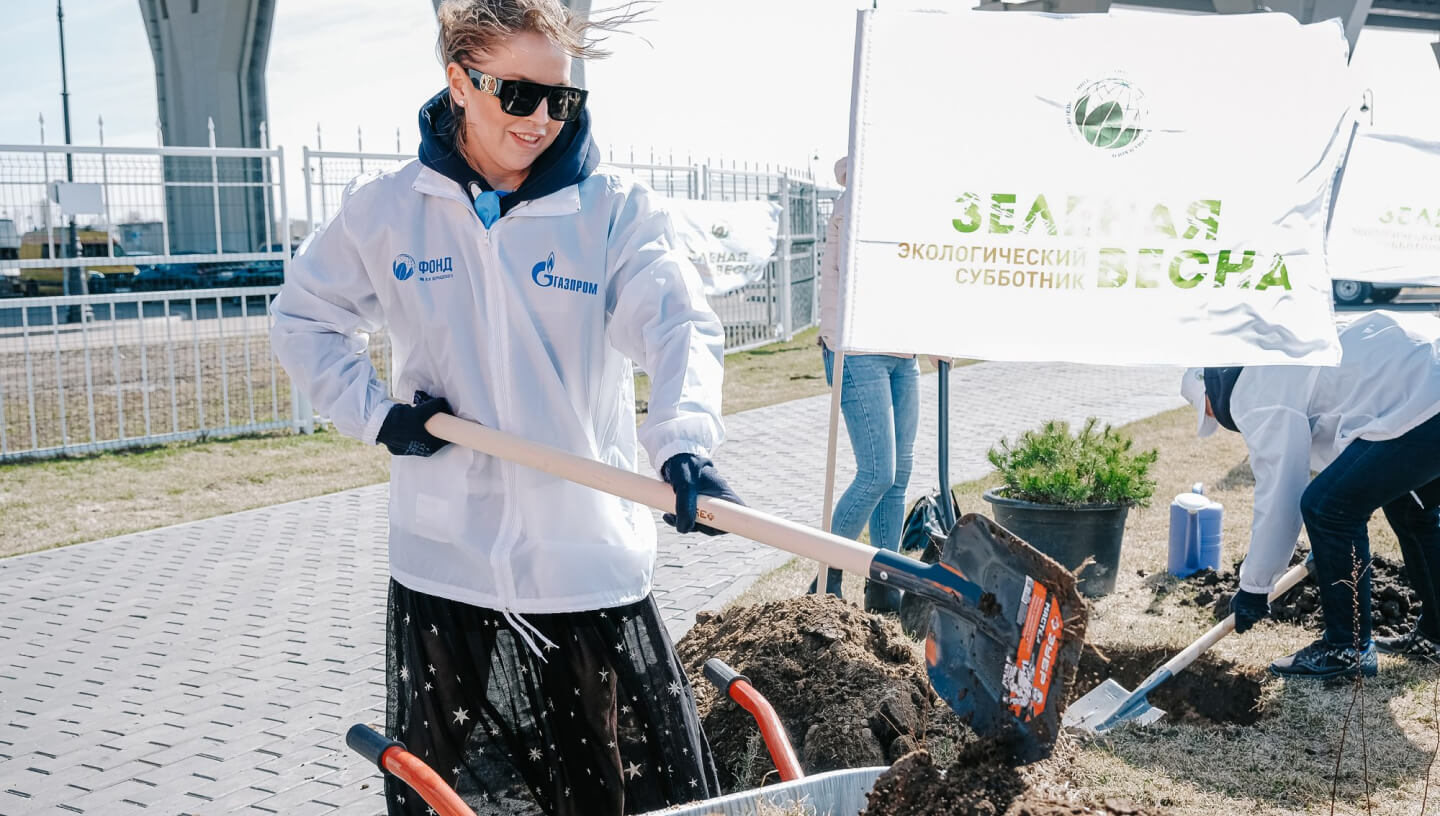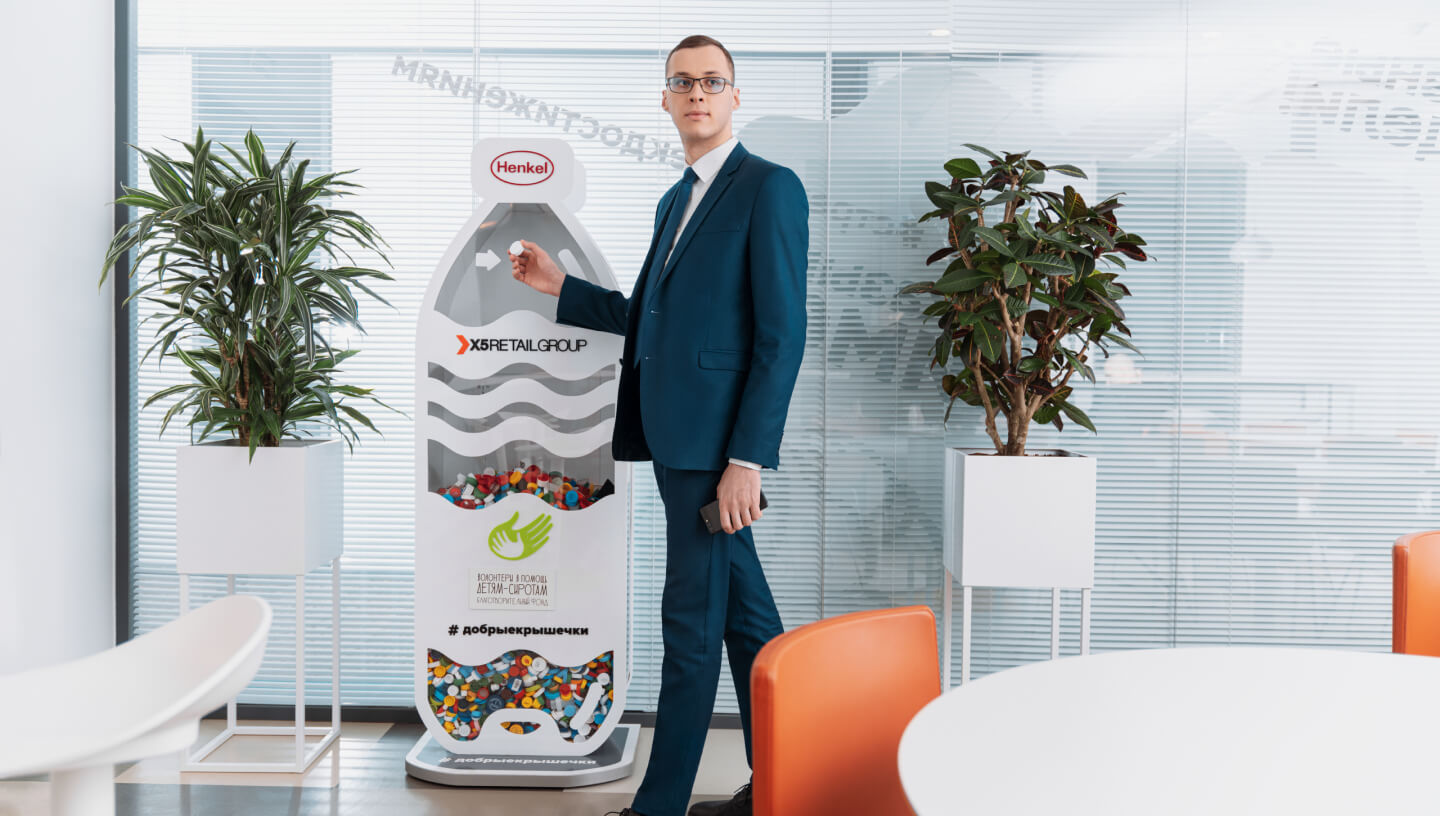The state of the planet’s environment and worsening global warming require new approaches to business operations. More and more companies are embracing sustainability, giving them a reputation for responsibility. Let’s find out how sustainability affects a company’s choice of job applicants and what opportunities it can give to its employees.
The idea of sustainability dates back to the early 1970s. Already at that time, environmentalists were sounding the alarm and raising the issue of green manufacturing and planetary pollution. The signing of the Paris Climate Agreement in 2015 has boosted the popularity of sustainability ideas in business and manufacturing.
Seven years have passed since then. During that time, many major companies around the world have adopted individual sustainability programmes for their production organisation and corporate policies. Among them are such major Russian concerns as Nornickel, Severstal, Rosneft and others. These companies have joined the ranks of the resident companies of the UN Global Compact National Network, an international UN initiative for business.
What is ESG
In essence, the sustainable development of a company can be divided into two areas: external and internal. The first relates to the organisation of production, responsibility for emissions and the elimination of the negative effects of the company’s activities on the environment. The second relates to the principles of corporate and social policy and ethics.
The company’s sustainable development goals, including as an employer, are based on ESG (environment, social, governance) principles — responsible attitude to environment, high social responsibility, high quality of corporate governance. The second ESG principle — social — relates specifically to the attitude of the company’s management to its staff, as well as social programmes for the population. Adhering to ESG principles, companies strive to introduce environmentally friendly technologies in the workplace, organise employees’ work according to the idea of reasonable consumption, support social and gender equality among employees, and implement projects to improve the quality of life and health of employees.
 Photo by: X5 Group
Photo by: X5 Group
Sustainability = modernity
In recent years, many companies in business and industry have embraced sustainability. These days, the adoption of a sustainability programme affects a company’s ranking and degree of advancement. In general, it can be said that nowadays a modern, successful and advanced company would not be considered as such if it does not have its own sustainability programme or actions in support of these principles.
Russia is a country rich in minerals and natural resources, which feed not only its inhabitants but also the populations of many countries around the world. However, the activities of most of the large resource extraction and processing companies (oil, metals, coal) are among the most environmentally unfriendly. Nevertheless, industrial giants such as Gazprom, Norilsk Nickel, Rosatom and others have adopted sustainable development programmes. These programmes are similar in their main areas and ideas: a commitment to strive to reduce emissions, to use natural resources rationally and to adopt innovative practices and technologies, to achieve maximum transparency of company operations and reporting, to support small Russian peoples in the areas where the company operates, and to implement the principles of sustainable corporate ethics.
Sustainability of a company is, of course, not only about large industrial corporations; it also applies to smaller companies. In Russia, the sustainability trend has not yet become widespread, but the trend is developing so that sustainability will soon become one of the most important promotional areas for any company. For small and non-manufacturing organisations, sustainability comes down to supporting ESG principles and implies, for example, implementing the principle of sustainability in the office (responsible use of consumables, etc.), sustainability in corporate ethics — developing charity programmes for the poor or hiring people with disabilities.
 Photo: Gazprom press service
Photo: Gazprom press service
Benefits of being a sustainable employer
Companies’ interest in external and internal sustainability also opens up a number of opportunities for staff, as projects are launched to maintain the health of employees, to green production, logistics and work organisation. With the adoption of sustainable development programmes and environmental projects, the company recruits additional staff: for example, ecologist and environmental project manager positions are available. This means new opportunities and perspectives for specialists in this field.
However, for the time being, the ethical side of sustainable development does not play a significant role for most job applicants in the company’s core business areas. Ecologist Oksana Orlova-Gorskaya says that this may be due to the fact that, for the most part, people are not at all concerned with environmental issues, which may be due to low awareness of the problem. After all, the company’s green credentials are reflected not only in global processes, such as the restructuring of production to a ‘green’ standard, but also in everyday little things, such as replacing plastic coffee cups with paper ones.
What role does HR rating play
Russian companies annually participate in competitions for both Russian and international HR ratings. By obtaining a high place in the rating, a company can thereby promote its image, reputation and increase its media exposure. The assessment of an employer is based on external and internal indicators — an analysis of the company’s activity and a survey of employees. At the moment most of the rankings on the attractiveness of companies for applicants lack the criteria of “sustainable development” and “greening”. Here, basic aspects of the work process such as stability, career development, salary dynamism and the like remain a priority. Nevertheless, a sustainability-driven company, by promoting its own programme, is at the forefront internationally, opening up opportunities for its employees ranging from professional development to the organisation of international projects. Such a company certainly looks more attractive to applicants.
The most relevant HR ratings in Russia are compiled by HeadHunter, Ancor, Superjob.ru and Forbes. Often, the same companies appear at the top of all such ratings. These include Russia’s largest organisations Gazprom, Norilsk Nickel, Sberbank, Yandex, Rosatom, Roscosmos, Novaport, Aeroflot and others.
 Photo by: X5 Group
Photo by: X5 Group
What sustainable employers offer
A few examples:
- Gazprom
In addition to HR ratings, Gazprom regularly ranks in the top 10 rankings of companies from the environmental and sustainability promotion field (ESC ratings, WWF’s rating of openness of oil and gas companies in environmental responsibility).
The company’s official website provides information on its billions of financial expenditures on environmental protection (97.54 billion roubles for 2021). In the area of corporate ethics, Gazprom adheres to the principles of equal opportunities, creates a work environment free of harassment and harassment, and does not discriminate on the basis of race, nationality, religious beliefs, gender, origin, age, or other grounds. Gazprom attaches special importance to protecting the rights of the small indigenous peoples of Russia living in the region where the company operates.
- Nornickel
Nornickel joined the UN Global Compact in November 2016. In 2018, the Company started integrating the Compact principles into its strategy. The Company’s plan includes the implementation of activities in line with the goals of the UN 2030 sustainable development agenda.
Nornickel links its key sustainability priorities to the ESG principles: striving to reduce its own impact on water bodies, air, land resources and biodiversity, ensuring efficient waste management and responsible operation of tailings facilities; support of socio-cultural diversity, struggle against discrimination, and reinforcement of the long-term relations with local communities in the regions where the Company operates, including the indigenous minorities of Taimyr and Trans-Baikal Territories residing in the areas of Nornickel’s operations; development of a unified corporate culture shared by all employees and creating an atmosphere of partnership and mutual respect.
The company’s internal sustainability projects include a wellness programme for employees and their families, voluntary health insurance, occupational health and safety measures and more.
- Sberbank
Russia’s largest bank, Sberbank, names seven principles for its ESG and sustainability activities: the priority of creating long-term economic value for all stakeholders (it is about promoting an economy in which finance helps businesses grow and business development contributes to the well-being of society and the environment); respect for human rights, inclusiveness, diversity, fair and equitable treatment of all; and respect for the environment; responsible finance practices and effective ESG risk management, accountability for the company’s impact, compliance with all applicable legislation; ethical business approach; improved information openness and transparency.
Sberbank’s management offers its employees ample opportunities for professional and personal growth (primarily in education), as well as supporting health and promoting healthy lifestyles among employees and their families and contributing to improved access to healthcare services through the development and implementation of technology. Based on the principle of developing partnerships between Sberbank and other companies and the government in pursuit of ESG goals, the bank provides opportunities for employees to implement various sustainable development projects.
- Yandex
The first report on Yandex’s sustainability achievements was provided in 2020 and the second one in 2021. Some of the standard sustainability principles (security and quality of services, well-being of employees) have been Yandex’s priorities for several years, while the development of social support programmes for partners and addressing climate issues have become relatively new areas.
The main field of Yandex’s activities in achieving the 2021 sustainability goals was increasing accessible and high-quality IT education and enhancing social support for drivers and couriers cooperating with the company’s services. In the environmental area, tracking and minimising the carbon footprint, developing waste management practices and supporting high energy efficiency of infrastructure.
Yandex’s achievements in the area of social responsibility include an increase in the number of jobs by 35% over the year, the presence of more women in STEM roles (technical and near-technical positions) than the average for global IT companies, and the gender pay gap at the company is reduced to a minimum and does not exceed 2%.
A little bit about the future
Sustainable development ideas and ESG principles actually shape environmental, social and corporate policy not only within an individual company, but also in society as a whole. Every year, the number of companies that have adopted sustainability programmes is steadily increasing. This fact leaves hope for overcoming the most pressing environmental and social problems in the near future: pollution, gender, racial and social inequality. Perhaps a responsible approach to the environment and to people, in companies large and small, will provide the basis for the emergence of a new, progressive society.
Author: Ekaterina Lidskaya
Cover photo: Anastasiia Yanishevska / iStock








Comments